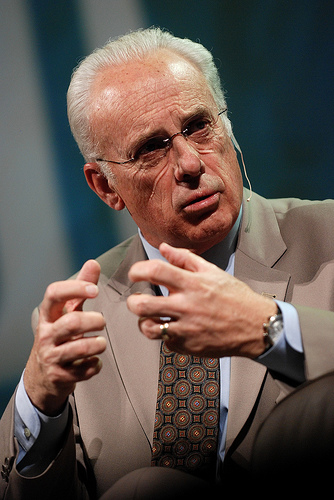At the beginning of September, John MacArthur, president of The Master’s College, and several other Christian leaders released “The Statement on Social Justice and the Gospel”.
MacArthur sought to address how Evangelical Christianity has frayed and fractured under the weight of secular social criticism. How should Christians view postmodernism and approach the social justice warrior’s trinity: feminism, critical race theory and intersectionality?
However, instead of uniting Christianity, the document has received considerable amounts of praise and blame—praise for naming social dangers to Christianity and blame for naming social dangers too broadly.
Despite its seemingly good intention to call Christianity back to a core social ethic, MacArthur’s move seems to have missed the mark. If Christianity is to unite as a cultural force, there must not only be an explicit force to unite against but also a positive alternative.
WHAT IS THE STATEMENT ON SOCIAL JUSTICE AND THE GOSPEL?
The Statement on Social Justice and the Gospel is a fourteen-point document, attempting to clarify key Christian doctrines and Biblical ethics. The hope is that, as the statement says,
“Clarity on these issues will fortify believers and churches to withstand an onslaught of dangerous and false teachings that threaten the gospel, misrepresent Scripture, and lead people away from the grace of God in Jesus Christ.”
These key Christian doctrines are a menagerie which mentions racism, complementarianism, sexuality, heresy, salvation, justice, the Imago Dei and more.
MOTIVATION
The motivation for the statement is that by allowing the church to accept the current social justice movement, the church is also accepting neo-marxist class warfare. As J.P. Moreland, a distinguished professor at Talbot School of Theology, writes,
“There is no question that there are racial and injustice problems today and the church can do a lot better—and offer a distinctive solution to—those problems. But what we cannot do, in the name of a facile notion of “compassion” and “tolerance” is to baptize whole cloth the current secular version of and solution to these problems…”
MISSES THE MARK
So does MacArthur’s Statement on Social Justice and the Gospel effectively respond to those abuses? According to The American Vision, an Atlanta-based organization that connects biblical law to civil law, the answer is clearly no. The American Vision argues that the document fails in three broad ways:
First, the document claims to provide clarity on issues to fortify the believer, but omits definitions for any of the key terms and ideologies referenced. What does the document mean by postmodernism or feminism, critical race theory and intersectionality? Without a clear definition, the document labels large swaths of public discourse as collectively wrong, sinful and dangerous.
Second, by blurring lines between the truth and the culprit, the document throws the baby out with the neo-marxist bathwater. By applying broad social condemnation, the statement commits the same social division and class-bashing it seeks to rebuke.
And lastly, it creates a secular monopoly. As the American Vision writes,
“The reason [for abuse], however, that secularists have a virtual monopoly on these things is because when it comes to law, history, economics, and more, too many Christians have abdicated or downplayed social theory and responsibility. This leaves a vacuum, and it has allowed nonbelievers to monopolize social theory, including empathy.”
REWRITE THE DOCUMENT
I would encourage rewriting the document to include three important improvements.
First, Christians must clearly and simply define the core issues in each of the theoretical, social and cultural categories. It is not enough to mention fiery buzzwords and social abuses—you must name the social evils without ambiguity.
Second, the assumption must be made clear. The motivation for this document was to respond to seeping “cultural neo-marxism”. Whatever that means, neo-marxism must be spelled out clearly, its social impacts named, and where, exactly, that ideology fails to mesh with Christianity’s core convictions.
And third, it is not enough to create a document pointing out social evils—we must possess solutions. If we can name the social evils and the impacts they are having, we must craft alternative solutions. It is quite silly to call Christians across America to fervently shake their heads—call them to action.
MOVING FORWARD
There was a time when the sciences were the ministerial arms of theology. There was a time when our values reached out into the world as the cultural creators and practical implementers of unabashedly Christian value. If Christians are to have hope in forming the social justice discourse, pastors and theologians must move beyond the protection of their pulpits and again speak to a new age, seeking new solutions.












